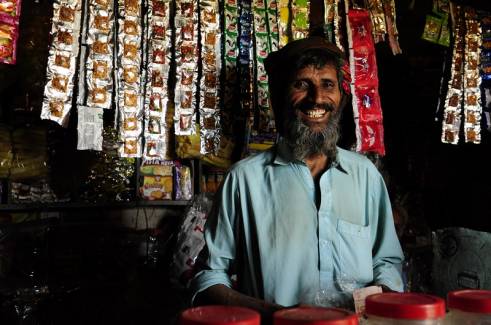By Sarah Marzouk
Today, the United Nations International Day of Older Persons, HelpAge International is launching the Global AgeWatch Index 2014. The Index ranks 96 countries according to the wellbeing of older people in four key domains: income security, health, personal capability and enabling environments.
At the same time, our Age Demands Action (ADA) campaign is taking place in around 50 countries worldwide. Activists are using the Index in their meetings with policy makers to discuss the issues that affect them. They are also calling for a UN convention on the rights of older people.
New in the 2014 Global AgeWatch Index
Norway tops the Index this year, closely followed by Sweden. Apart from Japan (9) all top 10 countries are again in Western Europe, North America and Australasia. Five new countries have been added since 2013: Bangladesh, Iraq, Mozambique, Uganda and Zambia.
The Index finds that the worst place for an older person is Afghanistan (96). Just above it are Mozambique (95), West Bank and Gaza (94) and Malawi (93).
Focus on pensions
This year, the Index report focuses on pension policy. Only half the world’s population can expect to receive even a basic pension in old age. Although policies supporting people in later life exist they need to be better implemented.
“The unprecedented rate and speed of population ageing presents policy makers with a challenge.” said Toby Porter, HelpAge’s Chief Executive.
“Only if they act now will they have a chance to meet the needs of their citizens.”
Social pensions are affordable
Virtually all countries have some kind of pension but over the past two decades there has been an explosion of new tax-financed, non-contributory “social pensions”. These now exist in more than 100 countries.
The cost of social pensions is much less than is often thought. Research in 50 low and middle-income countries found that the cost of a universal pension for all people over 65, at a level equal to 20% of average income, would range from 0.4% of GDP in Burkina Faso to 1.8% in China.
Ageing around the world
This is particularly important as population ageing is happening in all regions. Already two-thirds of the world’s over-60s live in low- and middle-income countries. This will rise to four-fifths by 2050.
The Index shows that, on average, people can expect to live 16 more years at age 60. There is, however, considerable regional variation in the number of years a person of 60 can expect to live and the number of years they can expect to live in good health.
Missing vital statistics
Sufficient data was only available for 96 countries, which means many countries are not included in the Index. This lack of data calls into question a government’s ability to plan effectively for the future of increasingly ageing populations.
“The work underlying the Index is already helping many governments improve the data available and ensure that it leads to better policy decisions,” said Professor Asghar Zaidi, Centre for Research on Ageing, University of Southampton, our academic partner in the construction of the Index.
Action around the world
Our Age Demands Action campaigners are marking the UN International Day of Older Persons to demand more from their governments, many specifically on pensions.
Some of the highlights from Age Demands Action (ADA) this year include:
- Our partner HelpAge India is organising a walkathon with over 5,000 older people walking 2km through the heart of Delhi calling for active ageing.
- In Lesotho, ten older people over the age of 100 are meeting their Prime Minister. Older people are asking their government to take action to improve their standard of living.
- Older people in Nigeria are taking part in ADA for the first time and are asking for a Nigerian Commission for Senior Citizens to be set up.
- In Paraguay, a petition is being handed over to the Itapúa Government. The petition calls for better access to pensions for older people.
- Older campaigners in the Philippines are taking part in a “Walk for Life” and will meet government ministries to call for better provision of social pensions for older people.
